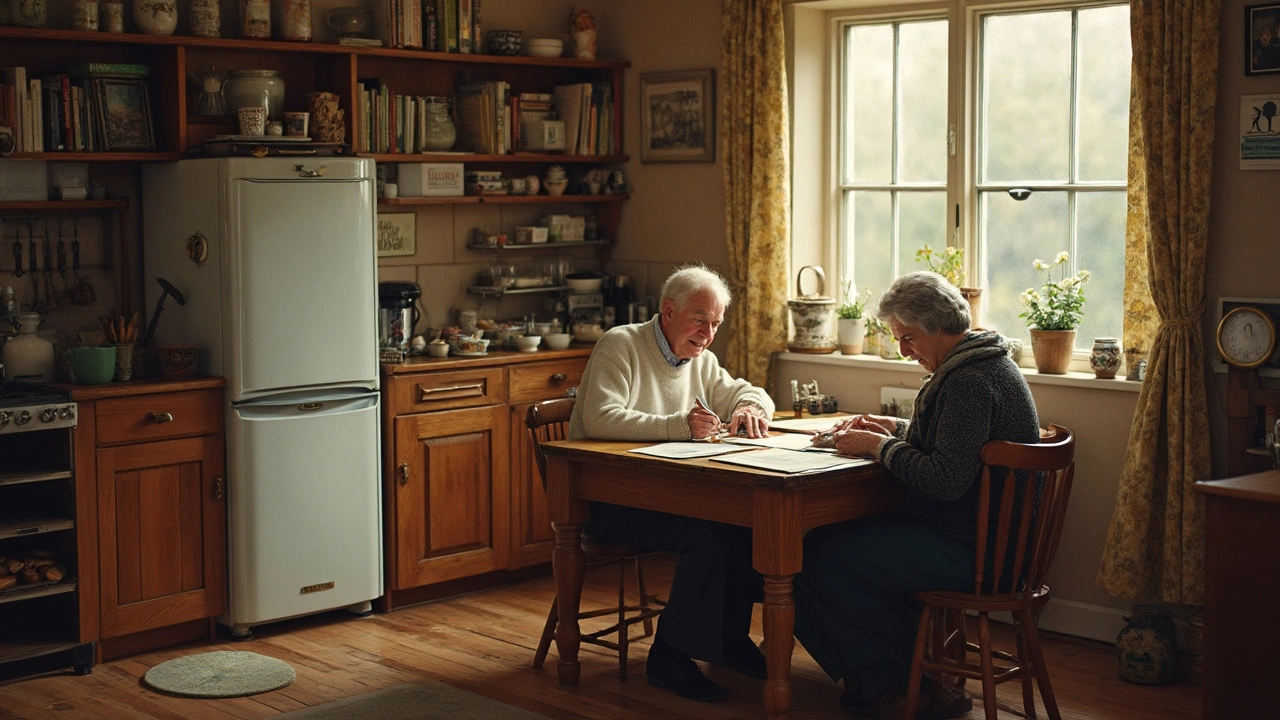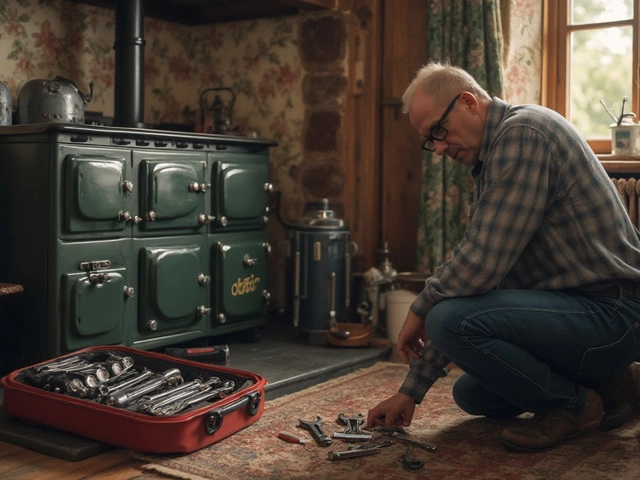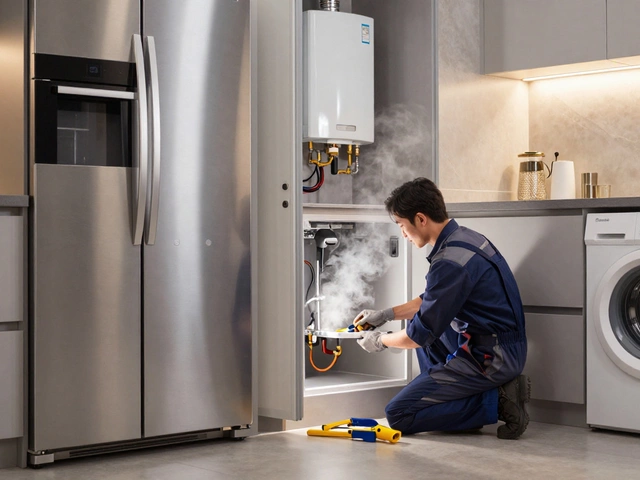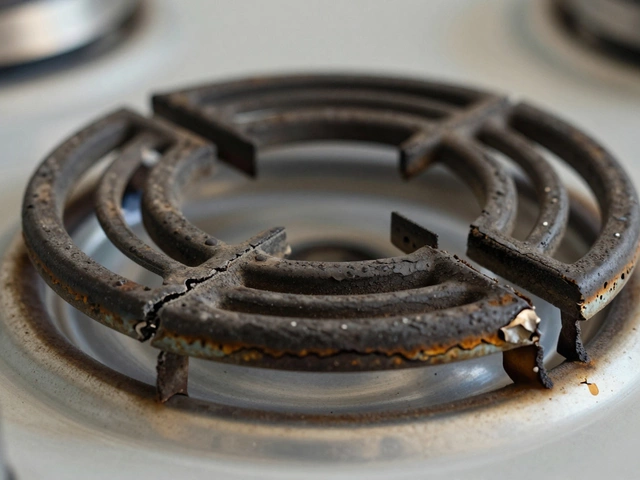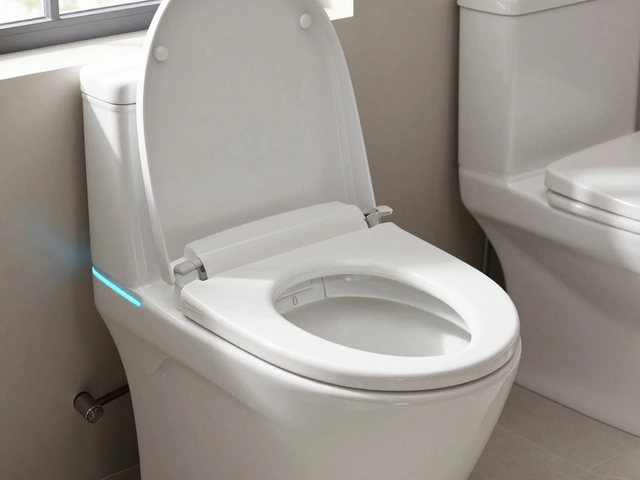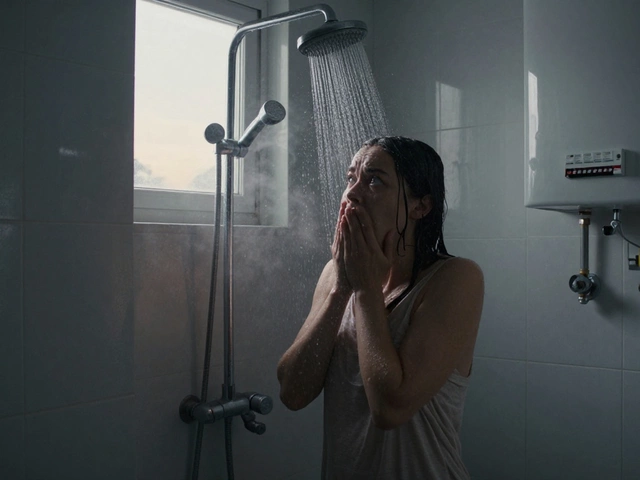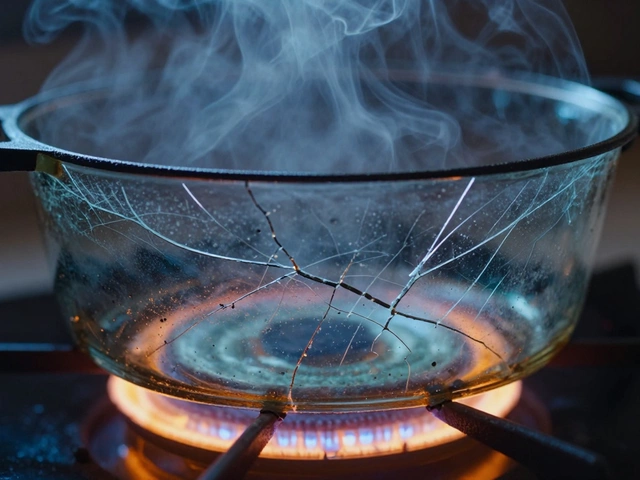People sometimes brag about old boilers running forever, but what's the real deal? Got an original 1970s heater chugging away in your basement? You're not alone. Boilers were built sturdy back in the day, but expecting 50 years could be pushing it for most folks.
If you’re hoping your boiler has decades left, pay attention to the signs. Rumbling noises, random pressure drops, water leaks or a sharp jump in bills usually mean something’s not right. These aren’t just quirks—they’re warnings you shouldn’t ignore.
Here’s the thing: good maintenance buys time, but even the best-kept units lose efficiency over the years. Once repairs start stacking up, those costs add up fast. Sometimes it's cheaper (and safer) to swap out your old boiler than to keep patching it up—especially if it's still burning oil or has super dated safety features.
- How Long Boilers Really Last
- What Makes or Breaks a Boiler’s Lifespan
- Keeping a Boiler Kicking: Do's and Don'ts
- When to Repair vs Replace That Dinosaur
How Long Boilers Really Last
If you’re wondering if boilers can really hit the 50-year mark, the honest answer is: it’s rare. Most residential boilers last between 15 and 30 years before they start giving owners serious trouble. Even the absolute tanks built in the 1960s and 1970s—like those cast iron beasts from your granddad’s house—usually don’t make it to a golden anniversary without major fixes or parts swaps.
The boiler lifespan depends a lot on the type. High-efficiency condensing boilers (popular these days) average about 10-15 years. Old cast iron boilers hang on longer, typically 20-35 years if you’re lucky and keep up with maintenance. Even then, the odds of any boiler running 50 years straight are slim. Most folks wind up replacing their system once repairs get too expensive or spare parts become impossible to find.
| Boiler Type | Average Lifespan |
|---|---|
| Modern condensing | 10-15 years |
| Standard gas | 15-25 years |
| Cast iron (older) | 20-35 years |
Some outliers really do last 40 years or more, but it usually means constant repairs and nursing them through breakdowns. And after about 25 years, old boilers lose a lot of efficiency, which drives up your heating bills even if the thing still works.
If you’ve got an ancient boiler, don’t just watch the calendar—watch for symptoms like short cycling, weird noises, or rusty water. These are bigger red flags than the boiler’s age alone.
What Makes or Breaks a Boiler’s Lifespan
A boiler isn’t just a hunk of metal that magically lasts forever. What really keeps them running is a mix of the design, how often they’re cared for, and the type of water running through the pipes. Ignore one of those, and you’re asking for headaches later.
First up—maintenance is king. Most boilers give up the ghost early because the basics get skipped. Yearly servicing keeps all the parts working right, catches problems before they spiral, and usually extends a boiler's usable years. If they’re neglected, small leaks or limescale can totally wreck the insides.
Here’s a quick look at what affects your boiler lifespan:
- Water Quality: Hard water means more mineral buildup. That junk coats the pipes and heats up badly, leading to breakdowns way sooner.
- Type of Boiler: Old cast iron units were built tough, but new high-efficiency ones might only last 15-20 years if they’re not treated right.
- Usage Patterns: If your boiler runs almost non-stop through every winter without rest, it will wear out before one that gets a break.
- Quality of Installation: A shoddy install is bad news. Wrong pipe sizes and poor venting knock years off a boiler's potential life.
Let’s put some numbers to it. Here's how long different boiler types usually last with regular upkeep:
| Boiler Type | Average Lifespan (years) |
|---|---|
| Cast Iron (old school) | 30-40 |
| Modern high-efficiency | 15-25 |
| Oil boiler | 15-25 |
| Combination (combi) boiler | 12-20 |
If you want to push those top numbers, always follow the manufacturer's maintenance checklist, watch your water hardness, and don’t ignore funky noises or new leaks. That stubborn old-timer of a boiler can serve you a lot longer if you treat it right.
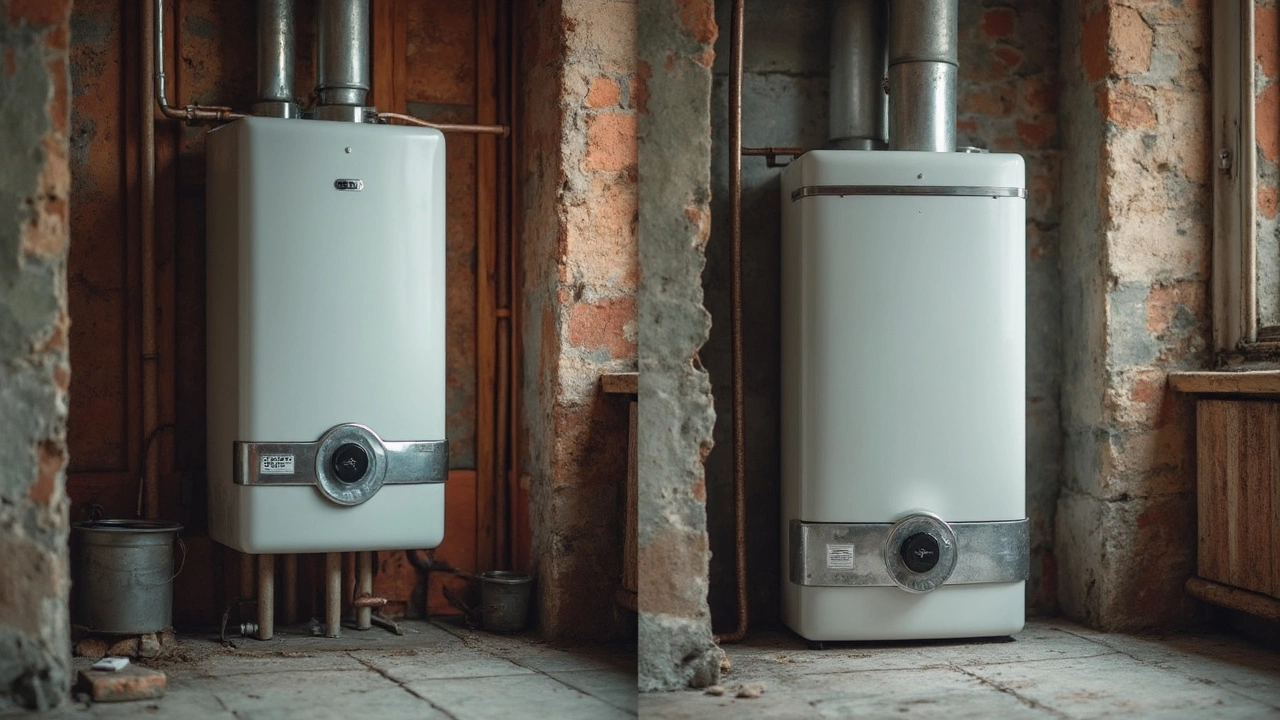
Keeping a Boiler Kicking: Do's and Don'ts
If you want your old boiler to last as long as possible, you’ve got to treat it right. Most breakdowns don’t just happen—they build up from bad habits, skipped checks, or letting tiny issues slide. Here’s what actually keeps a boiler going strong (and what shortens its life fast).
- Boiler lifespan depends on regular maintenance—yearly professional checkups are the bare minimum.
- Bleed radiators every fall so air pockets don’t mess with water flow or pressure.
- Check the pressure gauge once a month. If it’s way off, you’ve probably got a leak or a dodgy valve.
- Keep vents and exhaust flues clear. Blockages can trigger carbon monoxide risks and force your boiler to work too hard.
- Don’t hang laundry on radiators or stash stuff around the boiler. It needs airflow to run right.
Avoid these rookie mistakes:
- Ignoring weird noises (like banging or whistling). They often mean trapped air, a failing pump, or scale build-up.
- Pushing your boiler to the max all winter without a break. Occasionally lower the temp and let it rest overnight.
- Using tap water to top up the system all the time—it can bring in minerals that clog things up. Most places recommend specific treatment fluid instead.
- Skipping annual servicing just because "it seems fine." So many hidden issues show up during a pro inspection.
If you need some numbers, check out this quick guide. A well-looked-after modern boiler typically hits 15 to 20 years; a few old iron beasts get close to that 50-year dream, but only with real TLC:
| Boiler Age | Chance It Still Runs (with Good Maintenance) | Efficiency Compared to New (Estimate) |
|---|---|---|
| 10 years | 90% | 85-90% |
| 20 years | 60% | 75-80% |
| 30 years | 35% | 60% |
| 50 years | 10% | 30-40% |
Bottom line: get regular checks, listen for trouble, and don’t skip the boring little jobs. Your boiler will thank you by working longer—and safer.
When to Repair vs Replace That Dinosaur
Deciding between hanging on to your old boiler or finally switching it out can feel confusing. The first thing to check? How much you're actually spending just to keep it alive. Most experts say if your repair bill hits half the cost of a new system, it's time to let go.
Boilers seem like they’ll outlive all of us, but stats tell a different story. The average gas boiler sticks around for 15–25 years at best. Electric ones are usually toast after 20–30 years. Dragging them past their prime means higher bills, more risk, and sometimes, safety issues too.
| Boiler Type | Average Lifespan (years) |
|---|---|
| Gas | 15–25 |
| Electric | 20–30 |
| Cast iron (old school) | 30–50 |
If your system starts leaking, has rust, or just doesn’t heat evenly anymore, those are big warning signs. And if you ever notice a weird smell, turn things off and call someone—carbon monoxide leaks are nothing to mess with.
Here are some easy signs it’s time for a swap:
- You’re calling for repairs every year (or more often).
- Your heating bills have crept up without using more heat.
- Parts are either impossible or super expensive to find.
- Your boiler lacks modern safety features.
If your system is under 15 years old and doesn’t show those problems, a fix might be good enough. Keep up with servicing, and always use licensed pros for repairs. And if you’ve got an ancient cast iron model, treat it like a classic car—worth fixing if it’s safe and makes financial sense, but don’t let nostalgia put you in danger.
One last thing: a brand new system can be way more efficient. Some high-efficiency condensing boilers now run at 90%+ efficiency compared to the 60–70% on many antiques. You could see real savings on energy bills after an upgrade. So, even if you love that old hunk of metal, sometimes saying goodbye is the smarter, safer move for your wallet—and your peace of mind. If you focus on boiler lifespan and long-term costs, the decision gets a whole lot easier.

